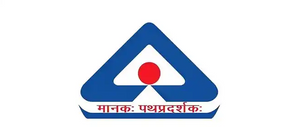
BIS Certification | Indian BIS Certification Inspection, Factory Audit and Certification Services
The Bureau of Indian Standards (BIS) is the national certification body of India, responsible for implementing the mandatory product inspection and certification system. This inspection and certification system is designed to ensure the quality and safety of imported products and protect the rights and interests of consumers. It is a necessary prerequisite for products to enter the Indian market.
Inspection and Certification System Architecture
Scope of Mandatory Inspection and Certification
The BIS inspection and certification covers a wide range of industrial sectors, including:
Household appliances and electronic equipment
Information technology and telecommunications products
Chemicals and Industrial Materials
Photovoltaic equipment and LED lighting products
Food and related agricultural products
Dual verification and certification mechanism
ISI Certification Mark
Quality safety inspection and certification based on the licensing mechanism
Require mandatory factory inspection audits
Applicable to electronic appliances, chemical products, building materials, etc.
Compulsory Registration Scheme (CRS)
The conformity inspection and certification declared by the manufacturer itself
There is no mandatory requirement for the initial factory inspection.
Mainly targeting electronic and IT products
Inspection and Certification Product Catalogue
Key Controlled Product Categories
The latest inspection and certification catalogue includes 71 major product categories, mainly consisting of:
Audio-visual equipment: Television set, audio system, video game console
Information technology equipment: laptops, tablets, printers
Household appliances: microwave oven, rice cooker, induction cooker
Lighting products: LED lamps, self-ballasted LED lamps
Power supply equipment: UPS, adapter, portable power bank
Security equipment: CCTV cameras, smart card readers
Detailed Explanation of the Inspection and Certification Process
Phase 1: Application Preparation
Submit an application for inspection and certification
Submit the application documents to the New Delhi headquarters of BIS
Pay the corresponding inspection and certification processing fees
Provide complete technical documents and test reports
Phase 2: Factory Audit
2. Initial Factory Inspection Certification
The BIS dispatched officials to conduct on-site factory inspections.
Evaluate the production quality control system
Review the process flow and equipment capacity
The applicant shall bear the costs of related travel and inspection.
Phase 3: Certificate Issuance
3. Obtain the inspection and certification certificate
Certificates will be issued after the factory inspection and testing are completed and found to be合格.
Certificate validity period: 2 years
Annual identification fee and certificate maintenance fee need to be paid.
Inspection and certification document requirements
List of core application documents
Official application form and authorization appointment document
Company registration certificate and business license
Complete production process flow chart
Quality Control System Document
Equipment list and laboratory qualification certificate
Accept the test report issued by the laboratory
Plant layout and geographical location diagram
Marking and Label Inspection Requirements
Mandatory Marking Regulations
The product and its packaging must be affixed with the BIS certification mark.
The logo should include: applicable standard number, certificate number, and BIS official website.
The format of the logo must comply with the specified requirements.
It is convenient for consumers to query and verify product information.
Subsequent supervision and maintenance
Continuous compliance requirements
The validity period of the certificate is two years. Before it expires, you need to apply for renewal in advance.
During the validity period of the certificate, annual factory inspection and supervision must be carried out.
It is necessary to continuously pay the identification fee and the annual fee.
Product changes require re-application for inspection and certification.
Market supervision mechanism
The BIS conducts regular market sampling inspections.
Revoke the certification qualification for non-compliant products
Establish a mechanism for handling consumer complaints
Importance of inspection and certification
Necessity of market access
Products that have not obtained BIS certification are prohibited from being sold in India.
The customs will handle the customs clearance procedures based on the inspection and certification certificates.
Violating the regulations will result in the product being detained and subject to penalties.
Value of Quality Control
Provide third-party quality and safety assurance
Enhance the competitiveness of the product in the market
Build a foundation of consumer trust
Through a thorough BIS inspection certification preparation process, including strict internal inspection procedures and adequate factory inspection preparations, enterprises can successfully obtain market access qualifications in India, ensuring that their products comply with local regulations and laying a solid foundation for long-term market development.
分享这个商品

BIS Certification | Indian BIS Certification Inspection, Factory Audit
The Bureau as the national certification body of India, is responsible for implementing the compulsory product inspection and certification system.
